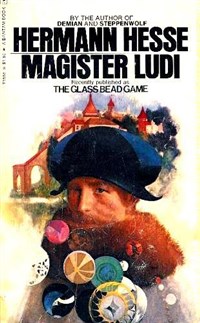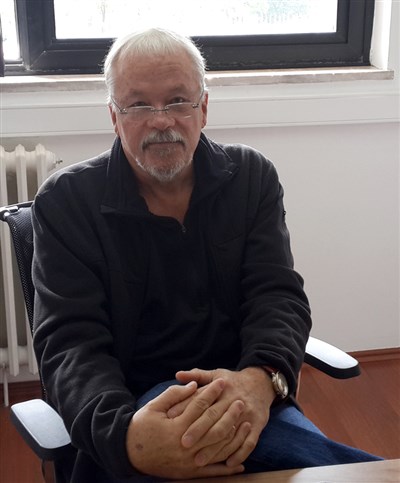Vis. Assoc. Prof. Mark Paul Frederickson, Department of Architecture
This is the first in a series of interviews with Bilkent faculty members discussing books that have influenced their lives and careers.
I really don’t have a favorite book, but I think one that had a big influence on me in a lot of ways is “Magister Ludi,” which I loved to read all the time. It’s by a German writer, Hermann Hesse, who won the Nobel Prize for literature. He wrote many books, but “Magister Ludi”—which was written a long time ago, between the two World Wars—is a fantastic book. It talks about academia and teaching, although it’s a novel set in the future. It’s really about people searching for relevance, doing things that make a difference.
Everybody defines relevance in their own way, as “what is relevant to me.” And this made me think, there are problems in academia, and we don’t really do many things that help the world become a better place. So what I wanted to try and do was focus a lot of my efforts on making architecture, landscape architecture and urban design relevant to students and relevant to communities around the world. Doing this involved traveling, going to other cultures and other places, seeing problems and their solutions, and bringing these ideas back to my students.
 If I hadn’t read “Magister Ludi,” I probably would have done pretty much the same things. But it did kind of reinforce some instincts that I had. I had traveled with my family; we learned a lot when we were children. So I had, in the back of my mind, an awareness that there was a big world out there, which was different from my world in America. I was curious about it, and so when I read this book, I saw that here was a guy, writing forty years ago, who was telling me the same thing. He was saying, “Yeah, Mark you’re probably right!”
If I hadn’t read “Magister Ludi,” I probably would have done pretty much the same things. But it did kind of reinforce some instincts that I had. I had traveled with my family; we learned a lot when we were children. So I had, in the back of my mind, an awareness that there was a big world out there, which was different from my world in America. I was curious about it, and so when I read this book, I saw that here was a guy, writing forty years ago, who was telling me the same thing. He was saying, “Yeah, Mark you’re probably right!”
The book is about a very young man, and it’ll sound weird, but he joins—not a monastery, but a group of people, very intelligent people. They focus on the synthesis of science and the fine arts, and play this game—“the bead game” is what they call it. It’s never really explained in detail in the book, but it’s an intellectual game, and these guys become masters over the years. They solve problems by synthesizing science, the arts, literature and those kinds of things. But the problem is that what they’ve solved is never really applied, so this this guy is beginning to get impatient. He sees all these brilliant people working on really interesting issues, but they stay in their beautiful “monastery” up in the mountains. They don’t try to apply what they’re learning and figuring out in their discussions. And he says, “I’m going to go and travel around a little bit.” So he starts to use this intelligence and knowledge to help different people.
It was a reaffirmation. All of my friends stayed in traditional architecture offices, and I was a little bit nervous about leaving home, going, but I read this book, and the guy said:
“No, it’s okay. Go.”
So, it was a reaffirmation.

